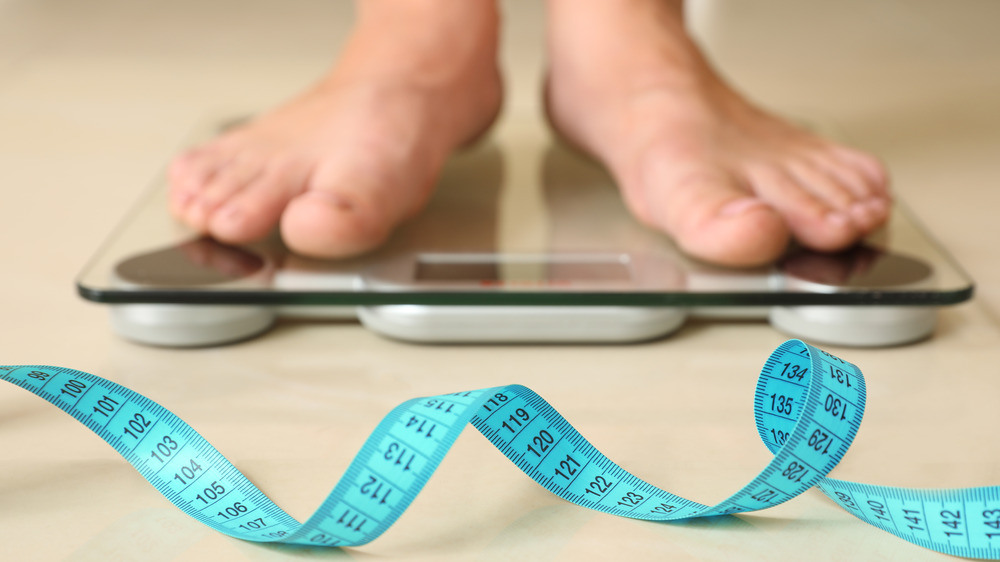The Truth About The ProLon Diet
The ProLon diet is a five-day diet that mimics fasting, restricting calories for a set period of time (via Healthline). Created by Dr. Valter Longo, Ph.D., an Italian biologist and researcher, the program is based on decades of research on the health benefits of fasting. The patented eating plan is meant to activate the body's fasting mode while simultaneously providing enough nutrition to the body and avoiding calorie deprivation that comes with other types of fasting (via Health).
According to the ProLon's website, a meal kit is delivered to your door in five small boxes, one for each day of the program. Meals are 100 percent plant-based, gluten-free, and contain no artificial additives. Foods in the kit include energy bars, soup blends, and a variety of drinks and snacks like herbal tea, kale crackers, olives, dark chocolate bars, and a glycerol-based energy drink. Calories vary by day but the plan is designed to provide 34 to 54 percent of a person's normal caloric intake and over the course of the diet plan, users are only allowed to consume food that is in the kit. ProLon provides a meal card that recommends how users should consume items in their kit each day, although the company says the foods and drinks can be consumed in any order, as long as each day's item are eaten on that day and do not carry over to other days. The cost for the kit is $249.
Does the ProLon diet work for weight loss?
Although there is not a lot of research surrounding ProLon, one small study led by Dr. Longo, found that people who adhered to the ProLon diet for three cycles lost an average of 6 pounds and experienced greater loss of belly fat compared to people who were not on the diet, according to Healthline. And when it comes to intermittent fasting itself, other research shows fasting promotes more weight loss than continuously restricting calories. However, there is no evidence that the ProLon diet is more effective than other fasting plans or low-calorie diets.
As with many diets, there are some things to be mindful if you're considering trying it out. If you're pregnant or breastfeeding, the ProLon diet is not recommended for you. Additionally, those who are allergic to nuts, soy, oats, sesame, or celery should not experiment with the ProLon diet since the meal ingredients are made up of these foods. The ProLon diet is also not recommended for anyone who has a history of disordered eating. If you have certain medical conditions, such as diabetes or kidney disease, you should speak to your healthcare provider beforehand, and if they approve, you'll still need to try the diet under their guidance and supervision.


